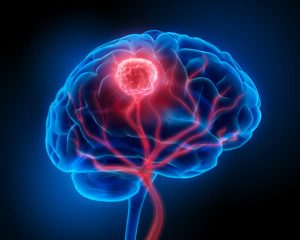
When You Diagnose (or Suspect) Cancer: 3 Reasons to Refer Your Patients to RCCA
“What happens next?” “Where should I go for treatment?” They are questions physicians often hear after informing a patient that they have identified potential cancer.
HIPAA Alert: Potential Data Breach Learn More
Questions on Oncology, Hematology and/or Infusion Clinical Services due to COVID-19 Crisis – CALL 833-698-1623
Important Information for Our Patients Regarding the Coronavirus.
RCCA Providing Area Cancer Patients with Access to Care During Coronavirus Outbreak
RCCA Offering Patients Virtual Visits During Coronavirus Pandemic
Brain cancer includes any cancerous tumor that forms in the brain. However, tumors may appear in different areas of the brain, vary in severity, and cause diverse symptoms. The type of cancer informs treatment plans. Early diagnosis of brain tumors allows physicians to initiate treatment sooner and, typically, achieve better outcomes for the patient’s health and quality of life. Serving patients in New Jersey, Connecticut, Maryland, and the Washington, D.C., area, the oncologists of Regional Cancer Care Associates have extensive experience treating brain cancer.

While there are many types of brain tumors, some are more common than others. A few of the most frequently seen brain cancers include:
This cancer starts in astrocytes, cells that support brain function and metabolism. Astrocytoma tumors can form in the brain or spinal cord and affect a variety of brain structures. They may grow rapidly or slowly and are most commonly treated with surgery. In some cases, physicians opt for radiation therapy or chemotherapy.
Similar to astrocytoma tumors, glioblastomas also form in astrocyte cells. This cancer is more aggressive than astrocytoma, however. It mostly occurs in older adults. Glioblastoma tumors form directly in the brain and are difficult to treat. As a result, physicians typically focus on slowing the spread of cancer through radiation or chemotherapy treatments.
This common brain cancer forms in the meninges, which are the membranes around the brain and spinal cord. Meningiomas may impact blood vessels and nerves in the brain, but some patients can have tumors for a long time without experiencing symptoms.
In some cases, the meningioma tumor affects important brain structures, resulting in symptoms that include problems with vision or hearing, and loss of sense of smell, among others. Meningiomas are most often found in older women. Most meningiomas are noncancerous. In such cases, patients may not need immediate treatment but instead can be managed with close monitoring. If the meningioma is cancerous, treatment typically involves surgery followed by radiation therapy.
Also called a secondary brain tumor, metastatic cancer in the brain mostly affects adults and arises from cancer that started in another area of the body, including the skin, breast, lung, colon, or kidney and has spread – or “metastasized” in medical terminology — to the brain.
The pituitary gland is a part of the brain responsible for the production of hormones. Many pituitary tumors are benign, but malignant types typically are removed surgically.
Brain cancer can develop for many reasons, including a family history of the disease and exposure to radiation. People with other cancers also are at risk for the disease spreading to the brain. The symptoms of brain cancer are generally the same for most types, although symptoms can vary for many reasons including where in the brain the tumor is located. Common symptoms that a patient may experience include:
Grading brain cancers is crucial because it informs treatment plans and survival rates. For example, the five-year survival rate for people with brain cancer in the United States is around 36%. After 10 years, this percentage drops to 31%. In general, brain tumors fall into one of four grades:
To determine the grade, physicians will need to take a biopsy of the tumor. Prior to biopsy, however, physicians will evaluate a patient with a comprehensive physical and neurological examination, and by obtaining imaging studies, such as a computed tomography (CT) scan or magnetic resonance imaging (MRI). They often will also order blood work or other tests to rule out other causes of the patient’s symptoms and to obtain a better understanding of the person’s overall health.
Physicians have many options for treating brain cancer, including surgery, chemotherapy, radiation, and other interventions, and often will employ a combination of those interventions to achieve the best possible outcome. For example, a patient may undergo surgery to remove the tumor completely. If removing the tumor entirely is not feasible, physicians may follow surgery with radiation therapy or chemotherapy to destroy any remaining cancerous cells. Physicians may also opt for other types of cancer treatments, such as radiosurgery and targeted therapy.
Patients needing treatment for a brain tumor or other type of cancer can turn to Regional Cancer Care Associates for comprehensive, cutting-edge, and compassionate therapy. Serving patients across New Jersey, Connecticut, Maryland, and the Washington, D.C., area, RCCA’s team of oncologists and hematologists provide patients with the most effective treatments available. To learn more about brain tumors and related cancers and their treatment, contact us today.
Doctors at Regional Cancer Care Associates (RCCA) are specialists in brain cancer. These experts have proven their leadership as professors, clinicians and researchers and were trained at the world’s most distinguished medical institutions. RCCA offers high-quality, advanced treatment near your home. We work with you and your family to make sure your care is second to none.
You can set up an appointment by calling the RCCA location nearest you. Or, for more information, call (844) 346-7222.

“What happens next?” “Where should I go for treatment?” They are questions physicians often hear after informing a patient that they have identified potential cancer.

Iron deficiency and the anemia that can result from it are serious conditions Learn more from Regional Cancer Care Associates

Iron deficiency and the anemia that can result from it are serious conditions Learn more from Regional Cancer Care Associates

Regional Cancer Care Associates is one of fewer than 200 medical practices in the country selected to participate in the Oncology Care Model (OCM); a recent Medicare initiative aimed at improving care coordination and access to and quality of care for Medicare beneficiaries undergoing chemotherapy treatment.